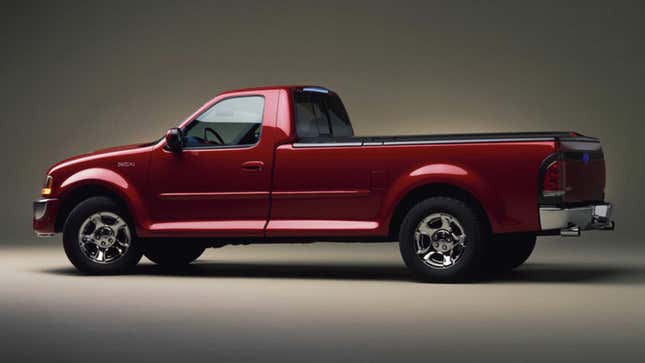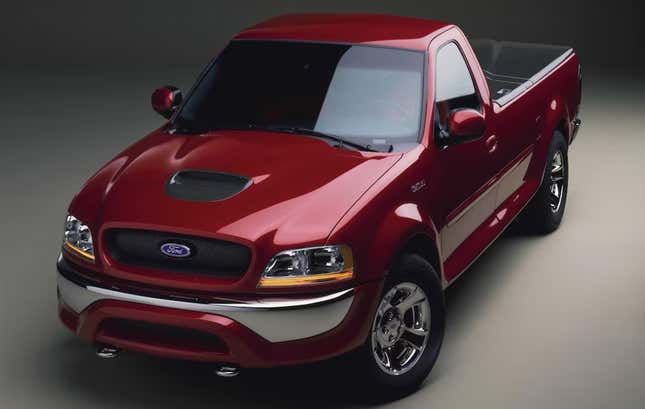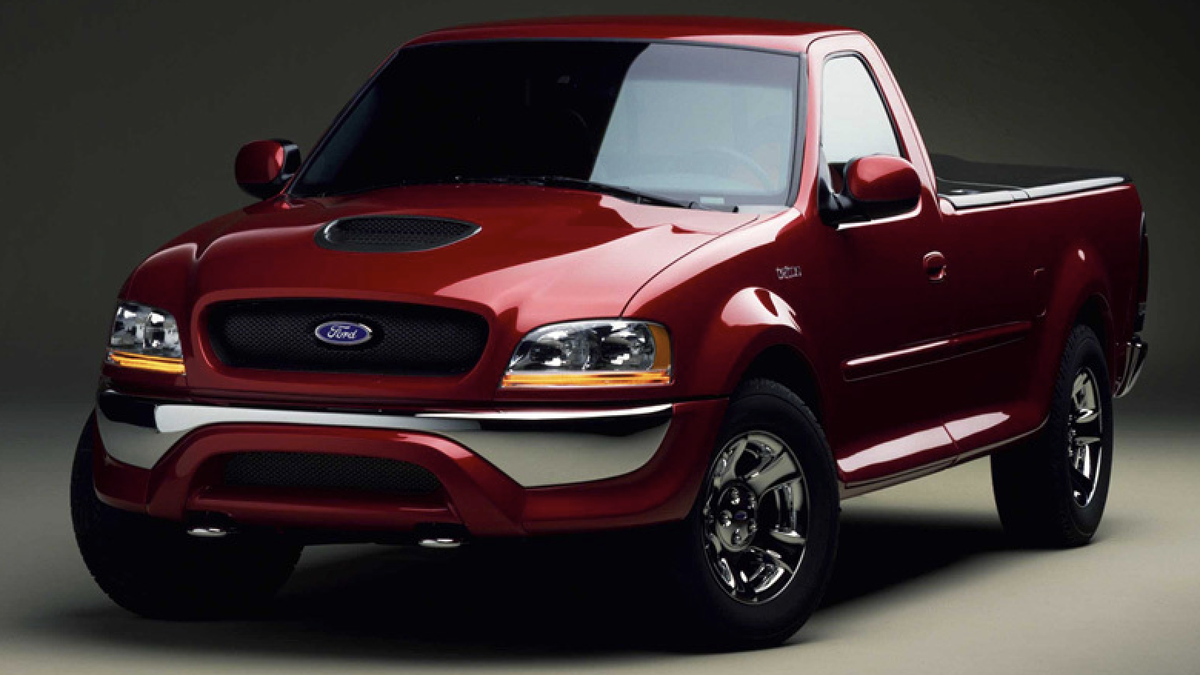The jump from the ninth-generation Ford F-150 to the tenth was jarring. It was when the Ford F-150 went from being a boxy truck with rounded edges to a truck that deliberately tried to looked like a car. It was hit or miss at first, but it went on to be a best-seller, likely spurred on by the popularity of the four-door F-150, which ushered in a new era of trucks as family cars in the early aughts. But before the redesigned F-150 went all in on four doors, it debuted as one of the most radical single cab trucks ever with a concept called the Ford Triton.
From the 1995 Triton concept, it’s easy to make out what would eventually go on to become the tenth-generation F-150, which featured the first major redesign to the pickup in over two decades, as Motor Trend reports. We can also easily see the outline of the second-generation Ford SVT Lightning. Other than a few changes to the front end, headlights and tail lights, the Triton concept made it to production more or less intact, but the changes are clear enough to warrant a double take.

The Triton concept has a stronger car vibe than the production pickup that followed two years later when the new Ford F-150 came out in 1997. The concept’s grill is more prominent and hood more rounded in comparison to the production truck.
The Triton’s hood scoop also makes it seem more about performance than work, and this theme would carry over when Ford marketed the latest F-150 as a sleeker alternative to work-focused trucks. The Triton name would live on in the 4.6-liter and 5.4-liter V8 engines that powered the F-150 for the next decade.
Even as a single cab with a long bed, the Triton was all about aerodynamics and softening the edges of the F-150 to make it more car-like, which aligns with the new approach among Ford’s designers that the New York Times described in 1991, before the truck’s PN-96 platform was finalized:
In the year 2,000, pickup trucks may look sleek, streamlined and sporty, and still be able to carry 4-by-8-foot sheets of plywood. That is, if students at the Art Center College of Design in Pasadena, Calif., have their way.
Andy Jacobson, director of truck design at Ford, said his company has sponsored design projects at the college since the 1960’s. “The school is one of our greatest sources of young fresh designers,” Mr. Jacobson said. “We hire an average of three students a year.” […Most] of the designs are sexy and more carlike, with cabs that slope back aerodynamically and with highly contoured sides, so that the cab and truck bed seem to blend together
To this day, the tenth-generation Ford F-150 looks out of place next to its predecessors and successors. Ultimately, Ford corrected course and debuted a design that squared the F-150 and made it look “trucky” again. The 1997-2004 Ford F-150 remains an outlier in the history of the model, but I still remember it as the truck that inspired the “LOBO” badge, which the F-150 wore in Mexico. And of all the concepts or trucks that Ford has ever released, the muzzle of the Ford Triton fits the “LOBO” badging best.


